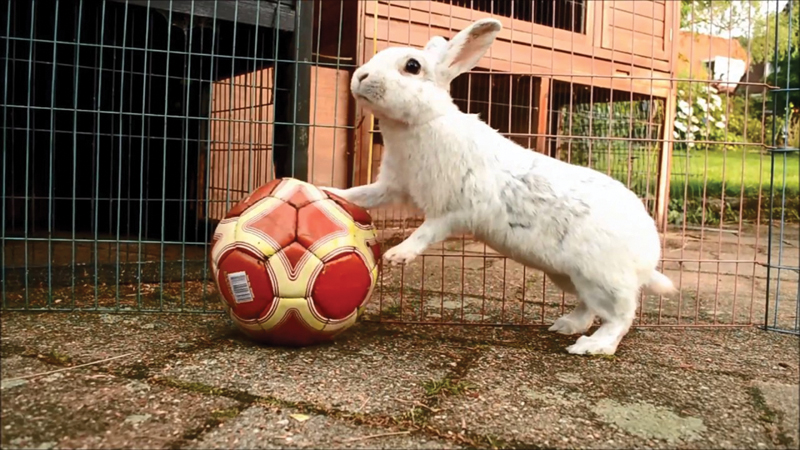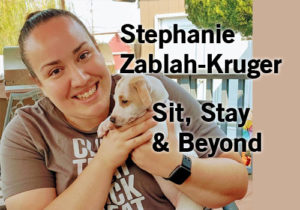Training bunnies may not be a lickety-split process

 Editor’s note: Stephanie Zablah-Kruger is an animal behaviorist with 14 years’ experience in the veterinary field and as a trainer. In her new Pioneer column, she will be writing about care, training and behaviors for all kinds of animals.
Editor’s note: Stephanie Zablah-Kruger is an animal behaviorist with 14 years’ experience in the veterinary field and as a trainer. In her new Pioneer column, she will be writing about care, training and behaviors for all kinds of animals.
Rabbits are fluffy balls of personality. They can be affectionate, funny, silly, sassy and, yes, trainable.
You’re most likely training yours already, without realizing it. If they can use a litterbox or come out to see you when you approach their hutch, you’ve already built a foundation for additional training.
In the wild, activities like discovering food, making a home and remaining safe create a daily routine. They also require a lot of mental and physical energy. Implementing training sessions into our rabbits’ routine is equivalent to the mental stimulation that those exercises and critical thinking errands would do in nature.
Rabbits can learn a lot more than we may give them credit for, and they enjoy it. Start by rewarding behaviors they perform on their own and put them on cue.
I find that rabbits are particularly receptive to clicker training, which is easy to implement. Using a word marker as a bridge works well, too.
Bringing an item to you, putting a toy ball into a container or exploring equipment you’ve laid out in the backyard are all “clickable” moments. Use these opportunities to teach your rabbit that it is beneficial to perform these behaviors. Soon, they may come to you when you call their names or stay calm while you manage their nails.
Stress levels
There are many benefits to using this type of training method on rabbits, but I think the most important thing to realize is how it can impact their stress levels. Remember, rabbits are prey species and can be very sensitive to stress. Just because they live in our home doesn’t mean their lives are completely peaceful.
For many rabbits, anything new can be upsetting. Having their nails cut can be startling, and an excursion to the vet can be horrendous. Taking them to a large gathering, whether it’s a local event or a bunny playgroup, can also be terrifying.
To decrease stress, use positive reinforcement training to help prepare your rabbit for situations like these.
Not all bunnies learn at a similar speed, and that is OK. Every single animal is different, and it just takes a little time to get to know how your bunny responds. Some catch on immediately, while others need time to understand how training works.
I have yet to meet a bunny that couldn’t learn, so try it and let your rabbits surprise you with what they can do.
You can contact Stephanie at cooperativecaretraining@gmail.com or 510-408-7162. Visit the website cooperativecaretraining.com for more information.

Stephanie Zablah-Kruger
Animal behaviorist, Stephanie Zablah-Kruger, 37, has 14 years’ experience in the veterinary field and as a trainer. Reach her at cooperativecaretraining@gmail.com, (510) 408-7162.
